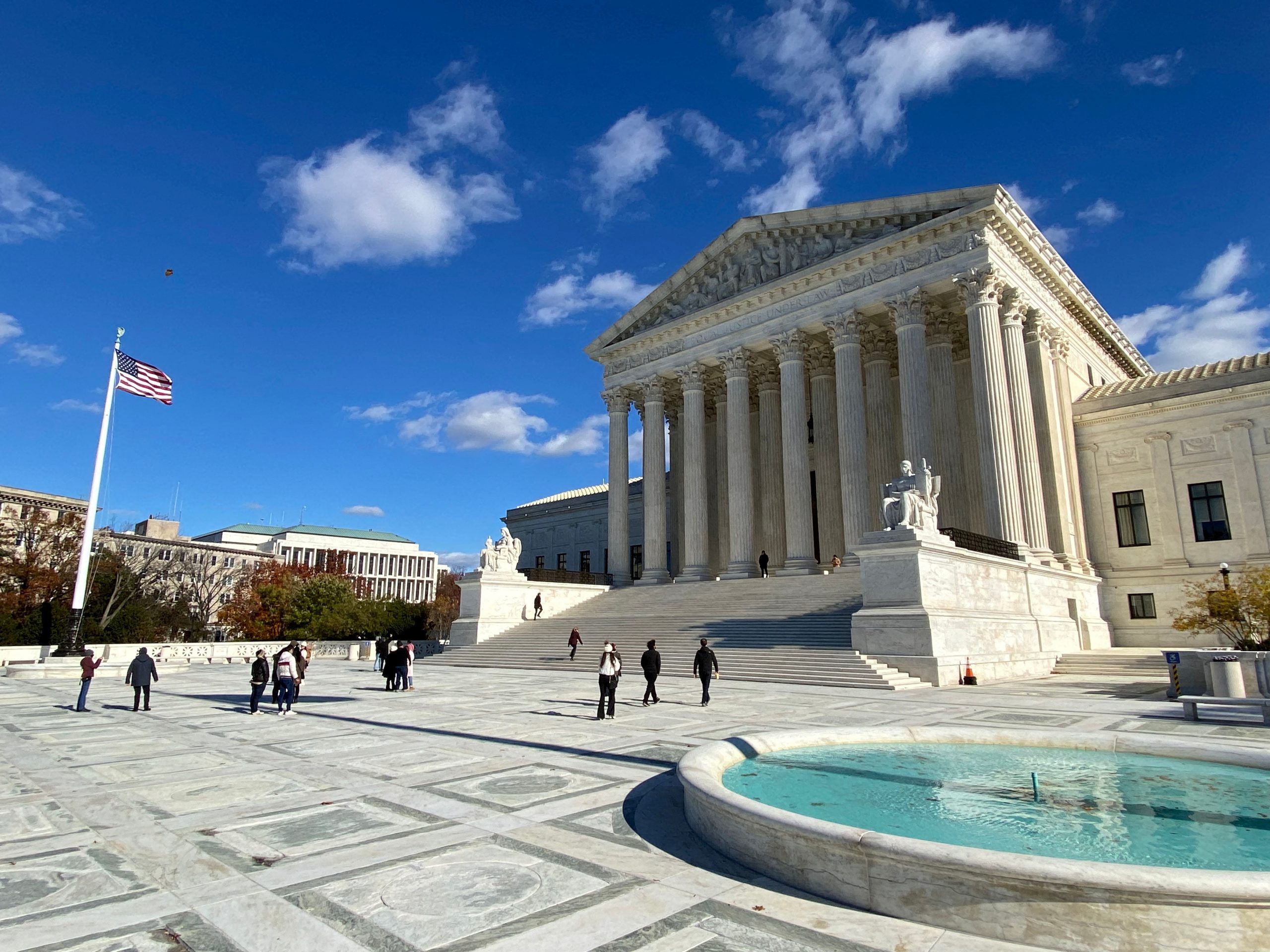
Lauren Moye, FISM News
[elfsight_social_share_buttons id=”1″]
The Supreme Court is prepared to make a ruling on whether a creative act counts as a form of constitutionally protected free speech even if it also doubles as a service business to others. The court case centers around evangelical Christian Lorie Smith who claims she should not be legally compelled to create websites for same-sex marriages.
Smith owns and operates a web design business called 303 Creative. When the Denver resident refused services to a same-sex couple seeking a wedding website because it violated her conscience, she found herself embroiled in a legal ordeal. The Supreme Court agreed on Tuesday to hear her case to be exempted from Colorado’s law on first amendment grounds. Oral arguments will be heard in the court’s next term between October and June 2023.
A lower court ruled that Smith violated Colorado’s anti-discrimination law by withholding services because of the clients’ sexual orientation. Alliance Defending Freedom, who serves as Smith’s legal counsel, maintains that Smith serves all people without discrimination but should not be forced to use her creative talents on a design that goes against her own religious beliefs.
“The government doesn’t have the power to silence or compel creative expression under the threat of punishment,” ADF General Counsel Kristen Waggoner said. “It’s shocking that the 10th Circuit would permit Colorado to punish artists whose speech isn’t in line with state-approved ideology.”
10th Circuit Chief Judge Timothy Tymkovich agreed with Waggoner as the lone vote in favor of protecting Smith’s creative freedom. He wrote in his dissenting view on the July 21, 2021, decision, “The Constitution neither forces Ms. Smith to compromise her beliefs nor condones the government doing so.”
He added: “This is, in a word, unprecedented. Taken to its logical end, the government could regulate the messages communicated by all artists, forcing them to promote messages approved by the government in the name of ‘ensuring access to the commercial marketplace.’”
Colorado Attorney General Phil Weiser rejects the view that the 10th Circuit decision was unprecedented. He said, “The U.S. Supreme Court has consistently held that anti-discrimination laws, like Colorado’s, apply to all businesses selling goods and services. Companies cannot turn away LGBT customers just because of who they are.”
Despite Weiser’s statement, Waggoner has the support of many friend-of-court briefs. These briefs include 16 states and 45 congressmen.
Waggoner is not the first evangelical Christian in the U.S. who has found herself in hot water after refusing creative services to a same-sex couple. ADF’s petition to the Supreme Court outlined numerous other creative individuals who became casualties or are currently in the same battle between LGTB and a conservative Christian view of marriage. This list included Elane Photography, Sweet Cakes, Barronelle Stutzman, Emilie Carpenter, Bob Updegrove, Chelsey Nelson, and fellow Denver citizen and baker Jack Phillips.
Phillips has twice been sued for refusing to bake a cake for members of the LGTBQ community. His trial for refusing to make a wedding cake for a gay couple went before the Supreme Court in 2018, which sided with Phillips but did not address the larger concern of creative expression as a first amendment right. Recently, the baker was once again sued for refusing to make a ‘gender transition’ cake.
“This Court must act now or officials with enforcement power over nearly half the country’s citizens will continue compelling artists to speak against their consciences while silencing them from explaining their beliefs,” ADF said in their Supreme Court petition.
Supreme Court justices declined to hear arguments for a religious exemption in Smith’s case.
